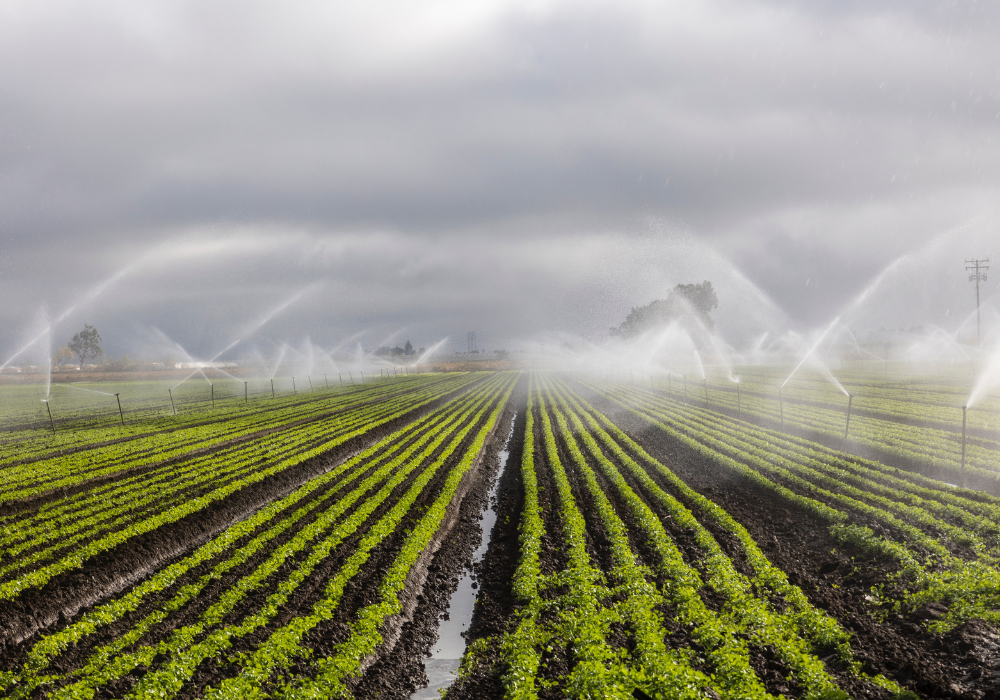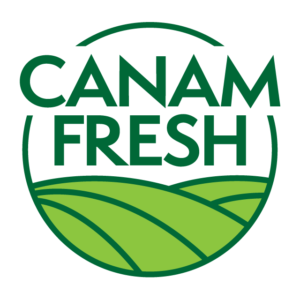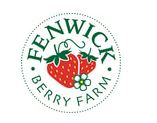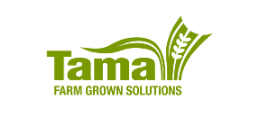In the modern agricultural landscape, the pursuit of sustainability has become increasingly paramount. Precision irrigation design has emerged as a pivotal strategy, offering farmers the means to optimize water usage, improve crop yields, and minimize environmental impact. At Heartnut Grove WWT (HGWWT), we are dedicated to providing innovative irrigation solutions tailored to the unique needs of farmers, empowering them to cultivate healthy crops while preserving natural resources. This comprehensive guide explores the significance of precision irrigation design and its transformative potential for agricultural sustainability.
The Significance of Precision Irrigation
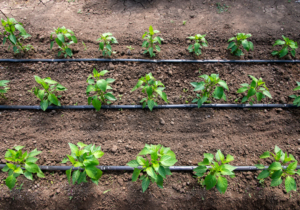
Precision irrigation represents a paradigm shift from traditional watering methods to targeted and efficient water delivery systems. By harnessing advanced technologies such as sensors, automation, and data analytics, precision irrigation enables farmers to customize water application according to crop requirements, soil conditions, and environmental factors. This precision ensures optimal moisture levels, promotes uniform plant growth, and minimizes water wastage, leading to improved resource management and sustainability.
Water Conservation: A Critical Imperative
In regions facing water scarcity and environmental challenges, water conservation is paramount for agricultural sustainability. Precision irrigation systems play a crucial role by minimizing water loss through evaporation, runoff, and deep percolation. By delivering water directly to the root zone of plants in precise quantities and intervals, these systems maximize water-use efficiency and minimize waste. Consequently, farmers can achieve significant water savings without compromising crop yield or quality, bolstering resilience in the face of water shortages and climate variability.
Resource Efficiency and Environmental Stewardship
Beyond water conservation, precision irrigation promotes overall resource efficiency and environmental stewardship. By optimizing water and nutrient delivery, these systems reduce the need for fertilizers and pesticides, mitigating the risk of nutrient runoff and groundwater contamination. Additionally, by minimizing soil erosion and compaction, precision irrigation helps preserve soil health and fertility, safeguarding the long-term productivity of agricultural land. Moreover, by enabling precise control over irrigation schedules and volumes, farmers can adapt to changing weather patterns and optimize resource allocation, enhancing operational efficiency and sustainability.
Enhanced Crop Health and Productivity
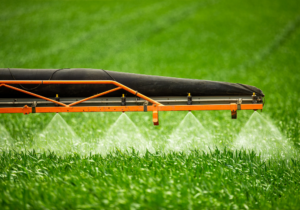
Precision irrigation design is instrumental in enhancing crop health, resilience, and productivity. By maintaining optimal soil moisture levels and minimizing water stress, these systems support robust root development, nutrient uptake, and overall plant growth. This, in turn, translates into higher crop yields, improved quality, and reduced susceptibility to pests and diseases. Furthermore, by providing crops with consistent and uniform irrigation, precision systems minimize yield variations and ensure reliable harvests, thereby enhancing farm profitability and food security.
Tailored Solutions from Heartnut Grove WWT
At Heartnut Grove WWT, we understand that every farm is unique, with its own set of challenges, objectives, and environmental conditions. That’s why we offer a comprehensive range of precision irrigation solutions tailored to meet the diverse needs of modern farmers. From drip irrigation systems for row crops to center pivot systems for large-scale operations, our products are designed to deliver maximum efficiency, reliability, and sustainability. Our team of experienced professionals collaborates closely with farmers to assess their specific requirements, provide personalized recommendations, and support them throughout the implementation process.
Challenges and Opportunities in Precision Irrigation
While precision irrigation offers significant benefits, its adoption may pose challenges for some farmers. Initial investment costs, technological complexity, and lack of technical expertise are among the common barriers to adoption. However, these challenges are outweighed by the long-term benefits of precision irrigation, including water savings, yield improvements, and environmental sustainability. Moreover, advancements in technology and ongoing support from industry stakeholders have made precision irrigation more accessible and user-friendly than ever before.
Future Trends and Innovations
Looking ahead, the future of precision irrigation holds exciting possibilities for further enhancing agricultural sustainability. Emerging technologies such as artificial intelligence, remote sensing, and predictive analytics promise to revolutionize irrigation management, enabling farmers to make data-driven decisions in real time. Additionally, innovations in water recycling, desalination, and alternative water sources offer new avenues for addressing water scarcity and expanding irrigation capabilities. As the agricultural sector continues to evolve, precision irrigation will remain at the forefront of sustainable farming practices, driving productivity, profitability, and environmental stewardship.
In conclusion, precision irrigation design represents a cornerstone of sustainable agriculture, offering farmers a powerful tool to optimize water usage, enhance crop productivity, and protect natural resources. By embracing precision irrigation technologies and practices, farmers can achieve a harmonious balance between productivity, profitability, and environmental stewardship. At Heartnut Grove WWT, we are committed to empowering farmers with innovative irrigation solutions that promote sustainability, resilience, and prosperity in today’s ever-changing agricultural landscape.

